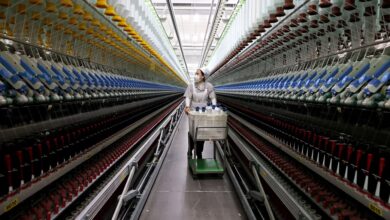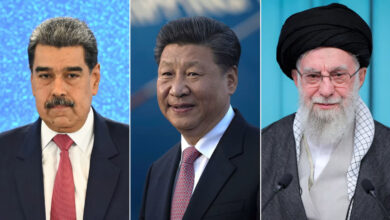
(CNN) – Authorities in China’s far-western Xinjiang region appear to have officially legalized so-called re-education camps for people accused of religious extremism, a little more than a month after denying such centers exist.
The Xinjiang government on Tuesday revised a local law to encourage “vocational skill education training centers” to “carry out anti-extremist ideological education.”
Human rights organizations have long alleged the Chinese government has been detaining hundreds of thousands of Uyghurs — a Turkic-speaking, largely Muslim minority native to Xinjiang — in such centers as part of an effort to enforce patriotism and loyalty to Beijing in the region.
In an August 29 report, the UN Committee on the Elimination of Racial Discrimination expressed alarm at reports of Uyghurs and other Muslims being held for long periods of time without charge or trial “under the pretext of countering terrorism and religious extremism.”
US Vice President Mike Pence made a similar accusation in a speech last week at the Hudson Institute.
“Survivors of the camps have described their experiences as a deliberate attempt by Beijing to strangle Uyghur culture and stamp out the Muslim faith,” Pence said.
The Chinese government has forcefully maintained the reports aren’t true and there is “no arbitrary detention or lack of freedom of religion or belief.”
“Xinjiang citizens including the Uyghurs enjoy equal freedoms and rights,” Hu Lianhe, a spokesman for China’s United Front Work Department, told the UN panel.
In the revised Xinjiang law, Article 33 stipulates that “institutions such as vocational skill education training centers should carry out trainings on the common national language, laws and regulations, and vocational skills, and carry out anti-extremist ideological education, and psychological and behavioral correction to promote thought transformation of trainees, and help them return to the society and family.”
The updated law all but acknowledges the growing reports of mass detentions inside Xinjiang, where former detainees say they were forced to yell patriotic slogans, sing revolutionary songs and study Chinese President Xi Jinping’s teachings.
Maya Wang, senior China researcher at Human Rights Watch, said Xinjiang’s regional government did not have the authority under China’s constitution to legalize the detentions.
“Without due process, Xinjiang’s political education centers remain arbitrary and abusive, and no tweaks in national or regional rules can change that,” Wang said.
In the past year, Beijing has radically attempted to tighten its hold over the remote region following a spate of violent attacks that the government blamed on Uyghur Muslim separatists trying to establish an independent state.
In a submission to the United Nations, the Germany-based World Uyghur Congress estimated at least 1 million Uyghurs were being held in political indoctrination camps as of July.
“Detentions are extra-legal, with no legal representation allowed throughout the process of arrest and incarceration,” the submission said.
Tuesday’s announcement came a day after local leaders in Urumqi, capital of Xinjiang, announced the beginning of an anti-halal campaign.
Under the new rules, all officials and police in the region must make a declaration that they are “loyal Communist Party members” and “don’t have any religious belief.” Their only faith is allowed to be “Marxism and Leninism,” and they must agree to “fight against ‘pan-halalization’ thoroughly,” the new oath said.
It isn’t the first time China has cracked down on elements of the Muslim faith in Xinjiang. In 2017, authorities first banned a wide range of activities, including wearing face coverings and having a long beard.




